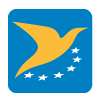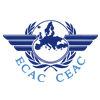
In Wuhan, China, on January 2020, cases of disease caused by coronavirus were reported. The disease starts with increased body temperature and coughing, and in more severe cases, it can result in pneumonia with heavy breathing.
Having in mind intensive migrations of Chinese population, particularly due to the celebration of the Chinese New Year and beside the huge measures of restraining migrations of Chinese citizens and putting all towns into quarantine, the confirmed cases appeared in other parts of the planet very soon.
It is determined that the virus is transmitted from a man to a man and it can be transmitted in the incubation period as well (that can take up to two weeks), without visible disease symptoms.
The disease symptoms are increased body temperature and symptoms of attacking respiratory system, such as coughing and heavy breathing.
The European Union Aviation Safety Agency (EASA) on 27 January published the Safety Information Bulletin https://ad.easa.europa.eu/ad/2020-02, including recommendations towards national aviation authorities, airlines and airport operators.
As a member of CAPSCA organisation, Montenegro receives on regular basis reports on current situation of virus spreading, updated information from the World Health Organisation (WHO) - Information Network for Epidemics (EPI-WIN), information for travel and transport industry (EPI-WIN) as well as guidelines for crew.
Useful information can be found in following documents:
Interim Recommendations for Airline Crew: Novel Coronavirus in China
WHO Information Network for Epidemics: FAQs for the Travel and Tourism Sector
At international airports Podgorica and Tivat, in cooperation with the Ministry of Health of Montenegro, Institute for public health, emergency and medical help assistance service at the airport, Health and Sanitary Inspection takes measures of medical oversight of passengers coming from infected regions in order to safeguard public health and prevent spread of epidemic. All aviation entities are acquainted with standards defined in ICAO Annex-9 (Facilitation) and Annex-6 (Operation of Aircraft, Part I – Chapter 6, Attachment B. 4.1.2.), as well as with recommendations of the WHO regarding the transportation sector.
Useful websites:
IJZCG (Institute for Public Health of Montenegro):
www.ijzcg.me
EASA:
https://www.easa.europa.eu/newsroom-and-events/news/easa-issues-sib-reco...
EACCC: European Aviation Crisis Coordination Cell:
https://ec.europa.eu/transport/modes/air/single_european_sky/eaccc_en
WHO: World Health Organisation:
https://www.who.int/emergencies/diseases/novel-coronavirus-2019/advice-f...
ECDC/DG SANTE: European Centre for Disease prevention and Control (ECDC):
https://www.ecdc.europa.eu/en/home
ICAO/CAPSCA: ICAO Aviation Medicine Section:
https://www.icao.int/safety/aviation-medicine/Pages/default.aspx
ICAO Collaborative Arrangement for the Prevention and management of Public health events in Civil Aviation (CAPSCA):
https://www.capsca.org/
IATA: International Air Transport Association:
https://www.iata.org/whatwedo/safety/health/pages/index.aspx




